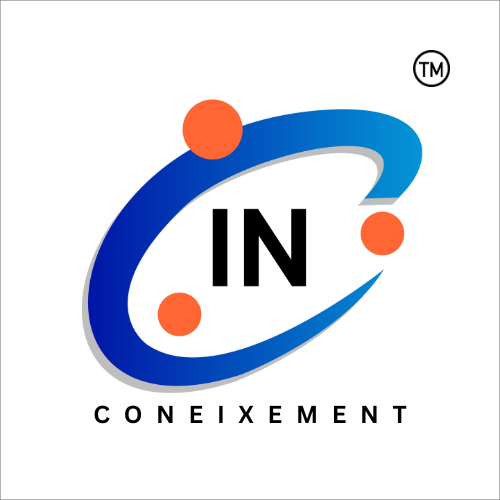Today’s educational world is changing rapidly. It’s high time for schools and colleges to update their HR policies focusing on diversity, equity, and inclusion (D E I). It will help them to create a better environment. This helps to improve the performance and success of students. We offer services to make good HR policies for D E I in schools and colleges. Our services can help in creating a fair and welcoming place for education.
D E I helps create a welcoming environment. It also improves how schools perform and how well students do. With our expertise, you can create a good HR policy that fits D E I standards for schools and colleges. The goal is to share ideas and methods for making schools and colleges more fair and welcoming places.

What is D.E.I.?
Diversity, Equity, and Inclusion, D.E.I are vital in education. They are not just trendy terms. D. E. I is critical in building a dynamic and supportive learning space. In such an environment, everyone feels important and respected.
Why it is necessary?
We all hold biases, often without knowing it. HR must lead the charge. They should actively find and break down biases. These biases can affect hiring, promotions, and daily decisions.
Every workplace can face conflicts. Discrimination should be quickly and clearly dealt with. Investigate and resolve each complaint. Most importantly, learn from them.
How to include D. E. I framework in HR policy?
The first step is to spot any gaps or biases. This helps create a workplace where everyone can succeed. An inclusive HR policy welcomes everyone. This applies from recruitment to promotion. It must be fair and feel supportive, similar to a warm hug. This policy should aim for transparency. It should ensure everyone gets equal opportunities. Also, it must strictly oppose any form of discrimination.
It’s more than just checking off tasks. It means creating a place where every worker feels listened to, important, and respected. Being inclusive and respectful should be standard practice, not just fancy words on a break room poster.
How to implement HR policy with D. E. I for maximum benefits?
It’s not a one-and-done deal. Regular Audits and Reviews of HR Practices for D. E. I Compliance are crucial for success. Regular audits are your compass, showing you if you’re on the right course or veering off track. Educational institutes can achieve their goals by constantly focusing on D. E. I compliance. They strive to make a safe and inclusive environment for students, educators, and staff.
Why is it important for educational institutes to prioritize Diversity, Equity, and Inclusion (D. E. I) in their HR policies?
Educational institutes must focus on Diversity, Equity, and Inclusion (D. E. I). This makes sure all students feel valued and respected. Embracing diversity allows schools to reflect our diverse society. This helps students prepare for their future in a diverse world. Equity gives every student the same resources and chances, no matter their background. This is fair and just. Inclusion makes every student feel they belong. This leads to better grades, mental health, and well-being. By supporting D. E. I, schools can fight discrimination. This ensures every student can succeed in a diverse world.
How can educational institutes assess the effectiveness of their current HR policies in promoting D. E. I?
Educational institutes can check their HR policies for diversity, equity, and inclusion (D. E. I) support. They have several methods to do this. One way is by using anonymous surveys. Another is by hosting feedback sessions. These efforts help find out if staff view practices as fair and inclusive. Analyzing recruitment, hiring, and promotion data can reveal biases. Comparing how long minority group employees stay versus the majority signals if changes are needed. Seeing how many diverse individuals hold leadership positions reflects the institute’s dedication to D.E.I. Through such evaluations, educational institutes can pinpoint areas for improvement. This process helps them update their HR policies to better champion D.E.I.
What steps can educational institutes take to address unconscious bias in recruitment and hiring processes?
Educational institutes can reduce unconscious bias in hiring by taking several steps. They can start by offering diversity training to all faculty and staff. This training helps everyone understand biases that might influence their decisions. The HR department should check Job descriptions and qualifications. They need to be free from biases and barriers. This makes sure diverse candidates can apply. Another helpful step is using structured interviews. These interviews have specific questions and criteria. They focus on skills rather than personal traits. Institutes should also have diversity goals. They need to review their hiring processes regularly. This helps identify and fix any unfairness. By following these steps, educational institutions can become more inclusive and fair. They make sure all candidates have equal opportunities.
How can educational institutes create a culture of inclusivity and respect among students, faculty, and staff members?
Educational institutes can create a welcoming culture. They can do this by setting clear rules against discrimination and ways to report it. Schools need to provide diversity training for the staff. This training helps staff understand various cultures and perspectives. Encouraging open discussions on diversity can break down barriers and boost empathy. Supporting student-led cultural clubs can also improve community and inclusion. Schools can create a respectful environment in several ways. They enforce rules. They offer training. They organize talks. Also, they host events that celebrate inclusivity.


